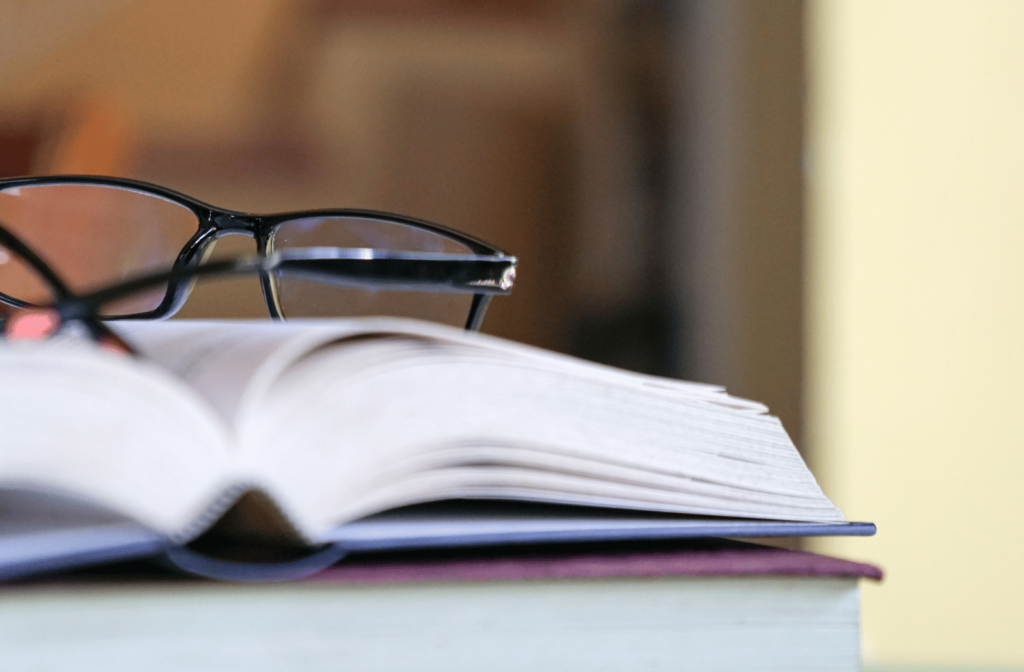If you notice the words in your book or computer look blurry, you might need reading glasses. This blurriness can be especially confusing if you’ve never needed glasses before. You may wonder why this is happening, but it’s common for many people.
Your eye doctor can confirm if you need reading glasses, but it’s always beneficial to know what these lenses are and why people need them.
What Are Reading Glasses?
Reading glasses are for people who need to see close-up images more clearly. They’re essentially magnifying lenses. Reading glasses come in different strengths depending on your vision.
Many older adults use reading glasses because their vision worsens with time. However, this isn’t the only use for them.
Some people use reading glasses to help prevent eye strain when focusing on nearby images and text. Magnifying text or pictures can make it easier to see, reducing the effort the eyes need to focus.
Why Might Someone Need Reading Glasses?
Someone needs reading glasses when it’s difficult to see close-up images. You may not notice this problem immediately—it may initially start as eye strain when you read a book or use your computer.
Watch for signs you’re struggling with your vision, such as:
- Having issues seeing small or fine print in dim light
- Experiencing eye strain when you read or focus on close-up tasks
- Having to hold books or images further away to see clearly
- Having frequent headaches when completing close-up tasks
If you experience these symptoms, book an eye exam with your Maple Ridge Eye Care optometrist. You may have a common condition known as presbyopia, which affects most adults after 40.
What Is Presbyopia?
Presbyopia is an age-related condition where the eye struggles to focus on close-up images. Many people develop presbyopia around their mid-40s, even if they don’t have a refractive error.
Billions of people live with presbyopia. This condition isn’t threatening to your vision—you just need assistance when looking at something close to your eyes.
What Causes Presbyopia?
This condition occurs when the eye’s lens becomes rigid with time, preventing it from flexing and changing shape as effectively. Because the lens is harder, your vision is blurry when looking at close-up images.
There’s no way to prevent presbyopia from developing because it’s a natural part of aging. You can use reading glasses to improve close-up vision, but where can you get these glasses?

Where Can You Get Reading Glasses From?
You have different options for reading glasses: over-the-counter or prescription lenses from your optometrist. It seems convenient to buy ready-made lenses from a store, but they may not be ideal for your needs. The glasses may fit awkwardly or lack the right lens power.
Prescription reading glasses from your eye doctor are customized for your eyes. They have several benefits, including:
- Custom-fit glasses
- Quality lenses
- Different lens strengths, if needed
When it comes to reading glasses, think quality over convenience. Over-the-counter lenses may be cheaper, but not everyone benefits from them. Speak with your optometrist before deciding to get their opinion.
Your optometrist can discuss your vision and style needs during an eye exam, helping you find the right glasses. If you aren’t interested in reading glasses, your optometrist may have alternatives they can recommend.
Are There Alternatives to Reading Glasses?
If you need help seeing close-up images, you don’t always need to rely on reading glasses. People with refractive errors and presbyopia can look into multifocal lenses, such as bifocals or progressives. These glasses feature multiple prescriptions in a single lens, helping you see clearly from different distances.
Bifocals have 2 prescriptions in the lens, separated by an easily identifiable line. Progressive lenses feature 2 or more prescriptions that seamlessly blend, providing a smoother transition between lens powers.
Ask your optometrist about the lenses they have in stock and see what options you have for your vision.
Get Your Reading Glasses from a Professional
Convenience can be beneficial, but prescription reading glasses offer customized quality lenses. Your eye doctor can help you find the best pair of glasses for your unique vision and style needs. Presbyopia doesn’t need to make life harder—invest in a pair of reading or multifocal glasses. Contact Maple Ridge Eye Care if you’re interested in reading glasses or if you experience presbyopia symptoms.


